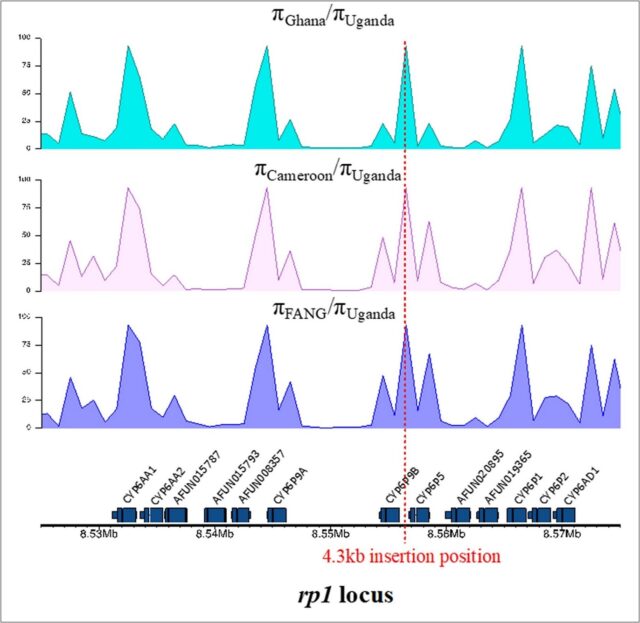 Malaria remains a major health concern in Africa. One way we control malaria is by targeting the mosquitoes transmitting the disease using pyrethroid insecticides. These mosquitoes are however becoming resistant to these insecticides, making it harder to fight malaria. Understanding how these mosquitoes can survive insecticide exposure will help guide malaria vector control programs to better manage resistance before the insecticides lose their efficacy.
Malaria remains a major health concern in Africa. One way we control malaria is by targeting the mosquitoes transmitting the disease using pyrethroid insecticides. These mosquitoes are however becoming resistant to these insecticides, making it harder to fight malaria. Understanding how these mosquitoes can survive insecticide exposure will help guide malaria vector control programs to better manage resistance before the insecticides lose their efficacy.
In this study we investigated the causes of pyrethroid resistance in Anopheles funestus, one of the major malaria-transmitting mosquitoes in Africa. A genetic change corresponding to a transposon was identified in mosquitoes collected from Central (Cameroon) and East Africa (Uganda). This genetic change was shown to have increased in frequency over the years and was linked with pyrethroid resistance. Hence it might be helping the mosquitoes to survive exposure to pyrethroid treated bednets. This genetic change can provide survival help because it drives the increase in the level of expression of pyrethroid-resistant metabolic enzymes, that rapidly clear out ingested insecticide. On the bright side, mosquitoes with this change were less likely to carry the malaria parasite.
These findings show the importance of studying mosquito resistance to insecticides as this provides valuable information such as allow monitoring of the presence of resistance and fighting insecticide resistance by providing alternative insecticide choices, which is crucial for controlling malaria.
Read more: https://journals.plos.org/plosgenetics/article?id=10.1371/journal.pgen.1011344






